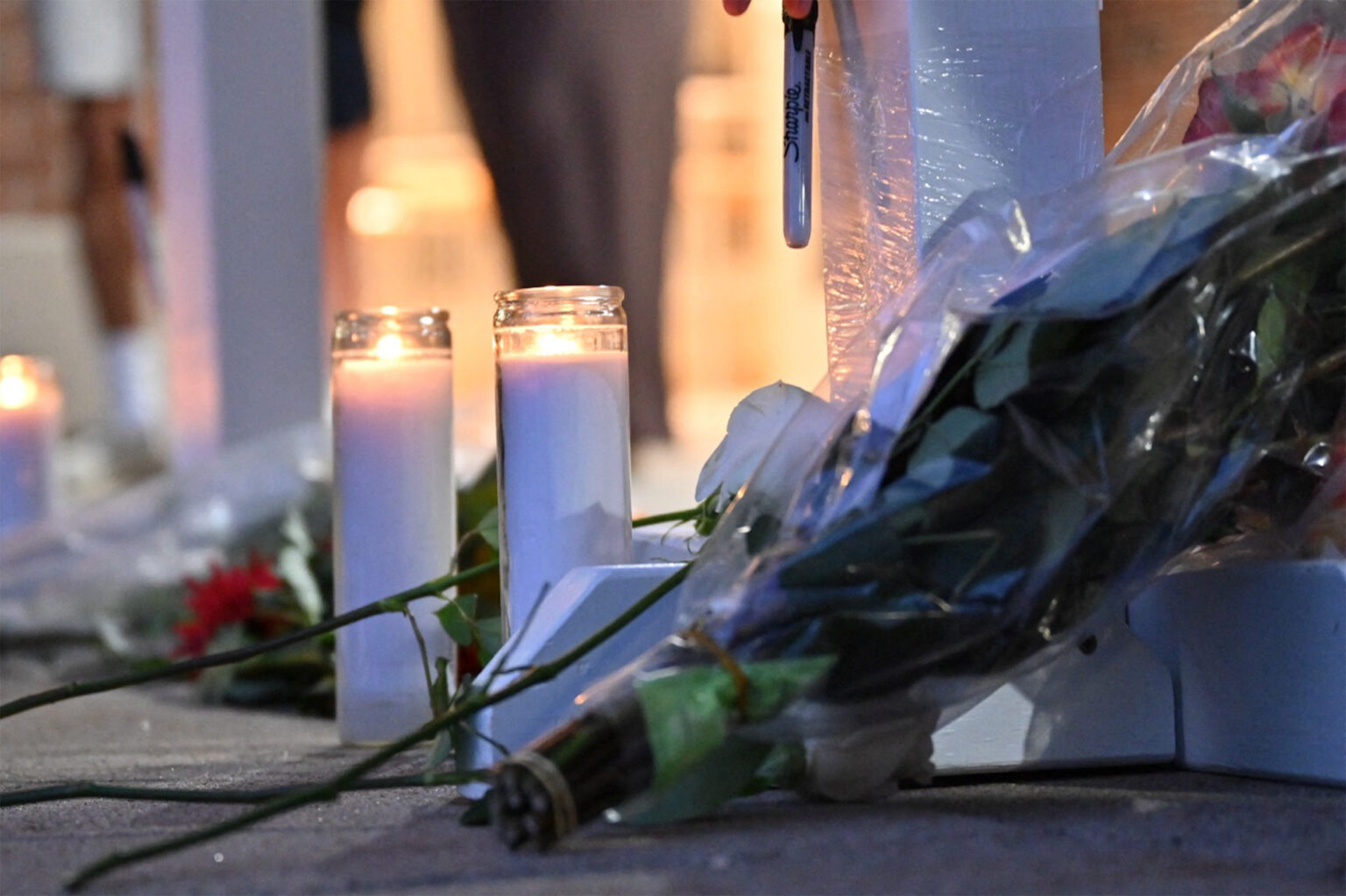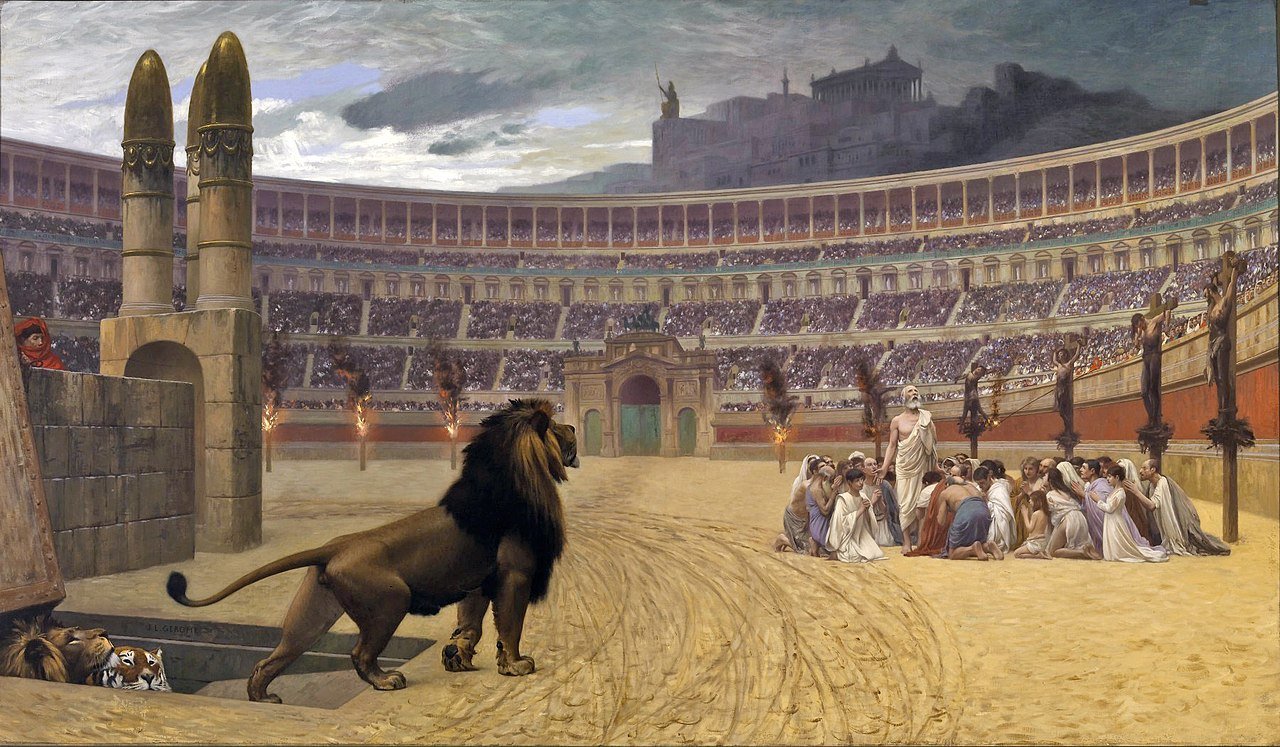Do you need a New Year’s resolution? How about Sunday Mass?
In the year 304, emperor Diocletian severely persecuted Christians in northern Africa, felt especially in the town of Abitina. Diocletian ordered Christians to surrender and burn their Holy Scriptures. Saturninus, a priest of Abitina, celebrated Mass every Sunday in the house of Octavius Felix. One Sunday, soldiers raided the house and captured those attending Mass, including Saturninus, women and children, Dativus (a senator), and young consecrated virgins.
When the Christian prisoners were arraigned they professed their faith in Jesus so resolutely that it impressed the judges. But instead of freeing the prisoners, the judges sent them in shackles to Carthage to be tried. During the trek, the Christians praised and thank God in hymns and song. They were brought before the proconsul, Anulius, and were charged with celebrating the Lord’s Day, contrary to the emperor’s edict.
They were tortured, and the proconsul tried to get the youngest boy, Hilarianus, to rejected reject the Faith, but he, filled with the Spirit, declared: “I am Christian. I have been to Mass at my own free choice, without any compulsion.” When threatened that they would cut off his nose and ears, Hilarianus just laughed and responded, “You may do whatever you want, but I am a Christian.” The proconsul sent him back to prison and Hilarianus cried aloud, “Thanks be to God.”
Women too bravely faced the challenge to renounce the Faith and their Sunday worship. One young woman of a noble family, Victoria, had converted and dedicated herself to Christ in virginity. When her parent tried to marry her off to a young pagan nobleman, she jumped out of a window on her wedding day and took shelter in the church. As she was of a high-ranking family, the proconsul tried to convince her to recant. “I’m a Christian,” she insisted. Her pagan brother tried to defend her by saying that she was not of her right mind, having been brain-washed by the Christians, but Victoria—fearing she might be denied martyrdom—declared that she was sane with responses much more rational than her brother. She would not return home to a brother who did not keep God’s law.
When the proconsul questioned the priest Saturninus he asked, “You brought all these people together against the command of the emperors and Caesars.” Saturninus replied, “Without reservation we celebrated the Lord’s day.” “Why?” the proconsul asked. The priest replied, “Because we cannot omit the Lord’s day. Our law requires it.” The proconsul rejoined, “You should respect the emperors’ commands and not do what they prohibit.”
One of the Christians, Emeritus, admitted to allowing his house to be used for Mass. The proconsul asked, “Why did you let these people into your house contrary to the emperors’ commands?” Emeritus replied, “Because they are my brothers and sisters.” “You should have forbidden them.” Emeritus said, “We cannot live without the Lord’s day.”
The proconsul tried to get a joint recantation, “I hope you will now obey the commandment that you may live.” All the Christians together replied, “We are Christians, we must keep holy the Lord’s day, even to the shedding of our blood.”
The whole group of 49 Christians gave their lives in witness to Christ and to the importance of being faithful to fulfilling their relationship to him by attending Sunday Mass, even if it would mean the loss of their earthly life.
Let us all ask: how valuable is Sunday Mass to me? Is it worth dying for?
Blessings,
Fr. John Waiss
Jean-Léon Gérôme, The Christian Martyrs’ Last Prayer, Walters Art Museum



